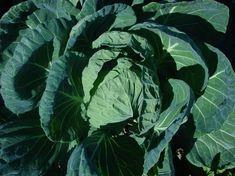
Eating cabbage could help cut the risks of lung cancer for some individuals, scientists have claimed.
Eating vegetables from the cabbage family at least once a week cut the risk for people with inactive versions of two genes, which are carried by 70 per cent of people
The work was undertaken by scientists from the International Agency for Cancer Research.
Vegetables such as cabbage, broccoli and sprouts are rich in chemicals called isothiocyanates, which strongly protect against lung cancer.
Normally, these chemicals are eliminated from the body by enzymes produced by the genes GSTM1 and GSTT1.
French researchers looked at 2,141 patients with lung cancer and 2,168 healthy individuals from Poland, Slovakia, Czech Republic, Romania, Russia and Hungary, where cruciferous vegetables are a normal part of the diet. DNA samples were taken, and their diets monitored.
No protective effect was seen in people who carried active versions of both genes.
But eating the vegetables at least once a week was found to have a 33 per cent protective effect against lung cancer in people who just had an inactive form of the GSTM1 gene, with around 50 per cent of people thought to have this form of the gene.
In those with an inactive form of the GSTT1 gene, there was a 37 per cent protective effect. Around 20 per cent have this form.
But individuals who had inactive versions of both genes - which applies to 10 per cent of the population - were 72 per cent protected.
Dr Paul Brennan, one of the scientists who carried out the study, told the BBC: "These data provide strong evidence for a substantial protective effect of cruciferous vegetables on lung cancer."